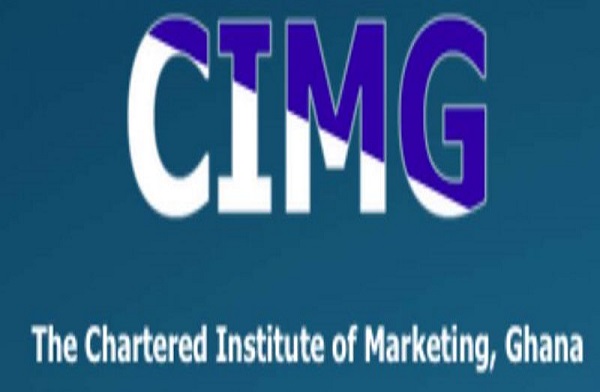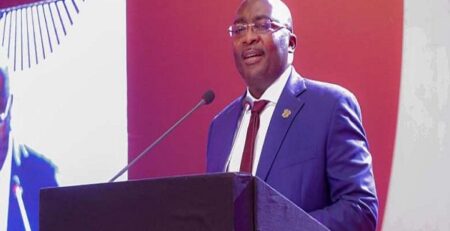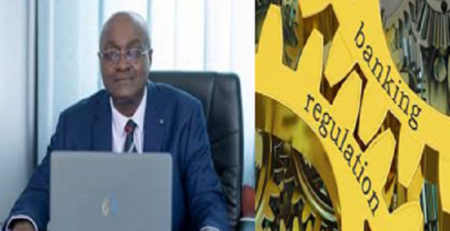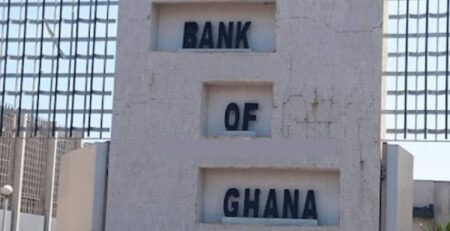CIMG releases 1st ever bank customer satisfaction survey
The Chartered Institute of Marketing Ghana has released a ground breaking research driven survey report on customer satisfaction in Ghana’s banking sector The report, which was unveiled officially at the Coconut Grove Hotel in Accra a fortnight ago, is the first ever survey of customer satisfaction in a services industry in Ghana.
It is not surprising that CIMG has tackled the banking sector in its first attempt to measure customer satisfaction in a services sector; the Institute’s incumbent President Dr. Daniel Kasser Tee is himself a professional banker, who is currently head of marketing at Ecobank Ghana, the country’s largest bank adjudged by balance sheet size. However CIMG has promised to extend its surveys to other sectors of business and economic activity subsequently.
If the banking sector customer satisfaction index is anything to go by this will happen sooner than later.

Actually the index is limited in scope in that it focuses only on retail banking; corporate customer’s satisfaction levels were not surveyed. This creates the potential for a disconnect between the financial performance – and underlying attractiveness of each bank to the general public – and the results generated by CIMG’s Customer Satisfaction Index, of CSI for short.
The research from which the CSI was drawn up consisted of teams, working in close collaboration with each other, from CIMG itself and Consumer Insights Consult which it contracted for this purpose.
CIMG’s representatives comprised: Dr. Kasser Tee, Kwabena Agyekum, CIMG’s CEO and Registrar; Rita Mateko Angman, Manager, finance, human resource management and administration; Franklin Sowah, national secretary; and Adam Sulley, consulting directotr, education and CPD.
CIC ‘s team comprised its CEO, Dr Ireneus Grendama; Matthew Kofie, Research Director; Emmanuel Nii Boye Odai. Data Manager; Dr. Alexander Preko, Data Analyst; and Daniel Humade, senior research executive.
The research covered separately traditional banking defined as customers who visit the bank for their transactions; and remote banking such as internet, digital, mobile apps SMS banking and the likes, commonly referred to in general as digital banking.
The model used to establish the index is called SEVPERF which assesses five items in 22 dimensions and is a simplified version of the widely used but often cumbersome SERVQUAL model.
The overriding objective of the study was to measure service quality, customer satisfaction and customer loyalty and resultantly establish a Consumer Satisfaction Index (the CIMG-CSI) for the banking industry. Apart from separately measuring customer satisfaction derived by each bank’s customers with regards to both traditional and digital banking the research also aimed to measure the levels of customer loyalty and thus their tendency to recommend or disparage the respective banks they use, this measured by their “net promoter score”.
Altogether 100 interviews were used from each of the 22 participating banks (one refused to take part) with every 5th interview used. All interviews were done in the respective banking halls after the customer had just finished a transaction. Two thirds of all interviewees used were males, the other one third being females.
Importantly, nearly half of all the interviewees claimed to be on incomes of below GHc2,000 per month; 35 percent on between GHc2,000 – GHc5,000; 11 percent earning between GHc5,000 and GHc10,000; four percent earning between GHc10,000 and GHc15,000; and four percent claiming to earn more than GHc15,000 each month.
This means that the survey focused on retail banking at the lower end of the market. While this means the research is not all-encompassing – most banks make more money from corporate and big business banking than they do from retail, this takes nothing away from the importance of the findings. Retail customers provide banks with their cheapest source of deposits and therefore their widest interest margins, which is a major determinant of both growth and profitability.
by several key customer considerations:
One is reliability, which considers a bank’s ability to perform the promised service accurately and dependably. Another is responsiveness which measures a bank’s willingness to help customers and provide prompt service. The third is assurance which considers the knowledge and courtesy of staff and their ability to inspire trust and confidence. Fourth is empathy which measures a bank’s caring and individualized attention paid to customers. Lastly tangibles were considered, this being the physical facilities, equipment and appearance of staff used in serving customers.

Instructively most banks scored quite high across the various factors considered in the survey. This is a victory for the banking industry as a whole; while borrowers may be complaining about the reluctance of banks to lend and the high interest rates
charged when they do, their retail customers are generally satisfied with the service they are getting.
In terms of the overall rakings for traditional banking, 11 banks scored over 90 percent this translating to a five star performance. In order of performance from highest to lowest these are:
Ecobank, Prudential, Societe Generale, Access, UBA, ABSA, Zenith, First National, First Atlantic, CAL Bank, and Fidelity Bank.
Four star ranked were Universal Merchant Bank, Standard Chartered, NIB, OmniBSIC, Stanbic, Guaranty Trust, Consolidated Bank, Bank of Africa, First Bank and GCB Bank.
No bank was rated three star or one star but the lowest ranked was Agricultural Development Bank rated two stars.
With regards to remote, or digital banking, Zenith Bank ranked 1st with five stars. The banks rated four stars were UBA, Fidelity, Ecobank, Consolidated, Access, Prudential, Bank of Africa The lower star ranking, in order of merit went to CAL Bank, Guaranty Trust, First Atlantic, GCB Bank, Societe Generale, Omni BSIC, First Bank, First National, Stanbic, ABSA, ADB, Universal Merchant Bank, Standard Chartered and NIB which brought up the rear. While the banks that did the best in the survey are naturally elated with their performance their counterparts that did not do so well claim not to be unduly worried, arguing that their core markets are outside those used in establishing CIMG’s index. But behind those brave faces of the latter there will be plenty of worried bank chieftains already looking at ways to make their retail customers happier than they are now.
Source : Goldstreet Business














Leave a Reply